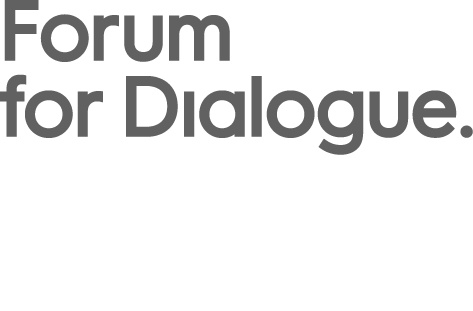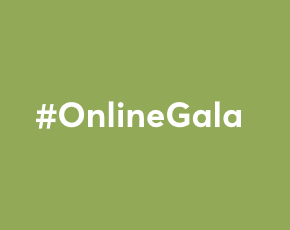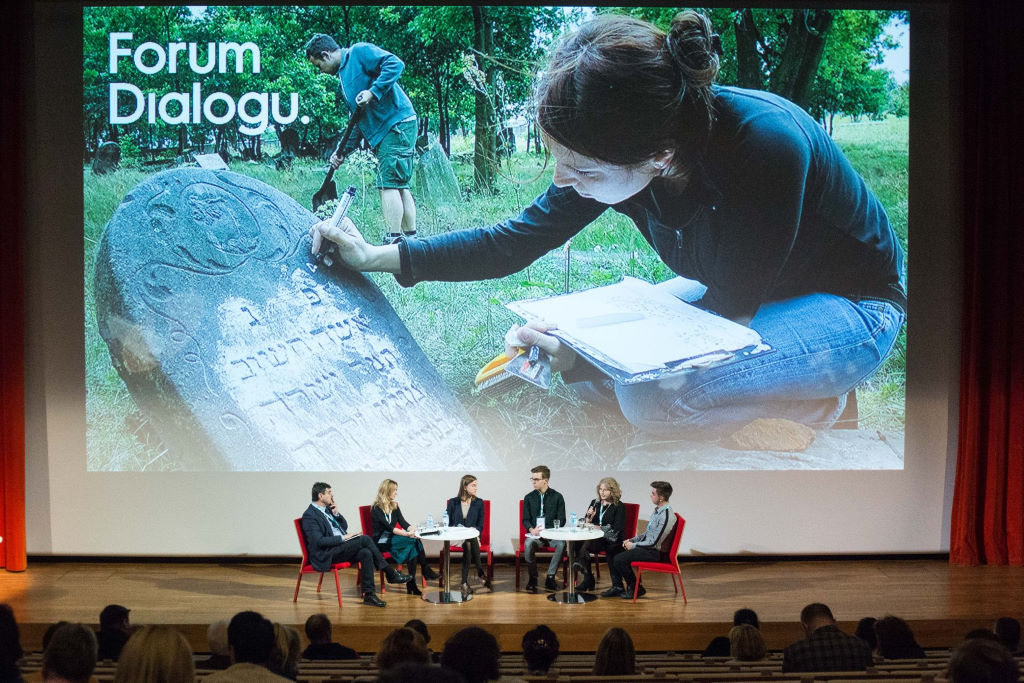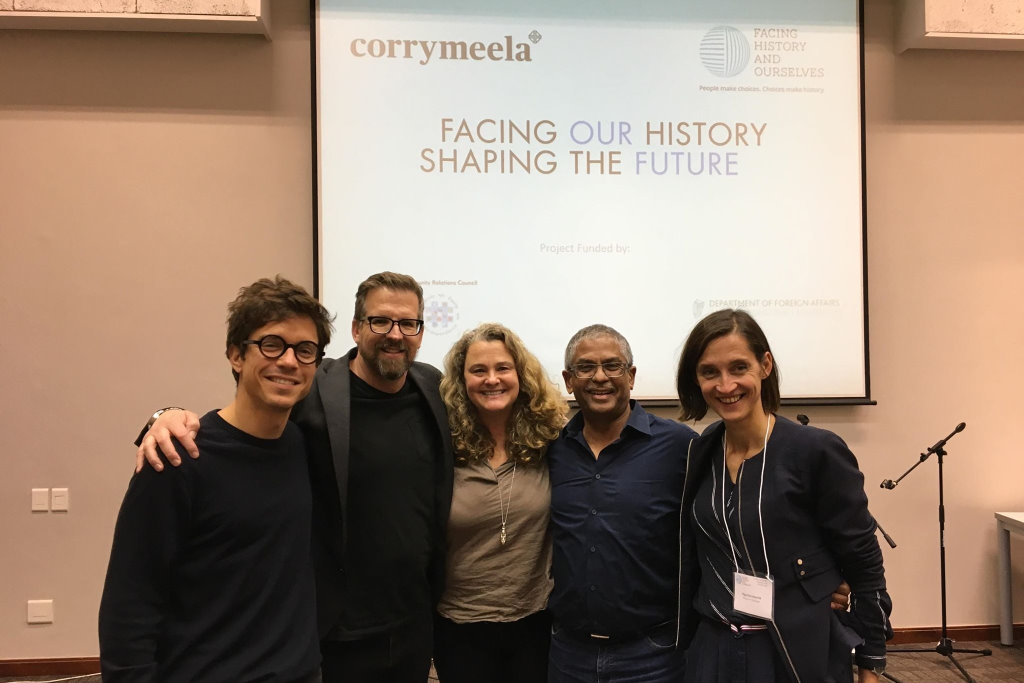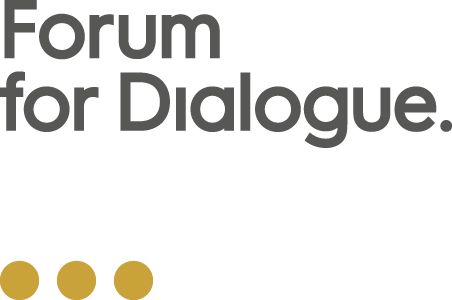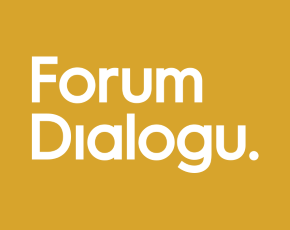
Since March 2020, the Forum team has been working remotely. This was motivated by our sense of responsibility and concern over the well-being of our staff, as well as the recipients of our programs. As a result, we were forced to cancel the conferences, seminars, and other activities we had planned for the year that involved having many people meet directly in one place. Though we cannot meet face-to-face, we do not stop the work of maintaining old and making new connections between people dedicated to Polish/Jewish dialogue. We have been successful in adapting our existing programs to the new online reality, so we can continue Forum mission in these changed circumstances.
The first challenge on our path was the School of Dialogue Gala, which we shifted online. With an audience of over two thousand students, teachers, and friends and allies of the Forum we awarded the School of Dialogue participants for their incredible efforts. You may read more about #GalaOnline here.
The next challenge was staying in touch with the Forum community and getting people involved in the Forum mission. Since March we have been working hard to offer an array of online meetings for various groups of Forum program recipients.
These online sessions include meetings with experts and scholars working on Polish/Jewish issues, but also help network various groups of Forum friends and allies, who can now discuss in real time their motivations and experiences. This online formula is a unique opportunity for our program recipients and friends from Poland, Israel, and the US to meet and talk.
We have also introduced changes in our Leaders of Dialogue program encouraging leaders from one region to connect and work together in regional groups that enhance networking and enable joint projects. You may read more about Leaders of Dialogue regional groups here, but so far we inaugurated four groups in four regions, and more are coming. These groups meet and plan online to ensure that the work is not stopped by the pandemic.
Marcin Dziurdzik June 18th, 2020
Posted In: EN News 2020
Leave a Comment
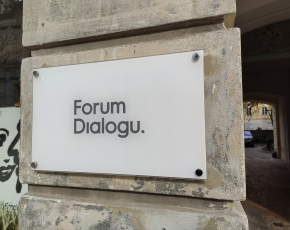
Due to concerns over the spread of the COVID-19, Forum for Dialogue is closing its Warsaw office until further notice. All our staff is switching to home office and will be available via email within Forum regular hours: 9 a.m. – 5 p.m. We apologize for the inconvenience.
Marcin Dziurdzik March 12th, 2020
Posted In: EN News 2020
Leave a Comment
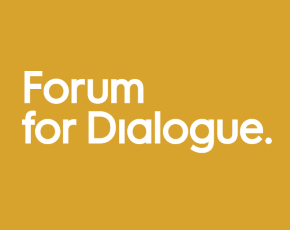
Yesterday, Polish authorities and public health institutions recommended that all indoor events for more than one thousand people should be canceled. In consequence of those announcements we have decided to cancel tomorrow’s School of Dialogue Gala held at the Teatr Wielki – Polish National Opera in Warsaw.
We were hoping against hope that such a cancellation will not be required, as the Gala enables us to honor the dedication and involvement of students from all over Poland in commemorating their local Jewish communities. It is a unique moment when we can show how important this memory of Polish/Jewish history and heritage is in and for Poland.
Given the pressing epidemiological concerns and recommendations from official institutions, calling the Gala off is the only rational decision. The health and safety of the students, teachers, and Forum’s friends and allies is our top priority.
We will be announcing the winners of the School of Dialogue commemoration project competition shortly, as their hard work will not remain unrecognized.
Marcin Dziurdzik March 9th, 2020
Posted In: EN News 2020
Leave a Comment
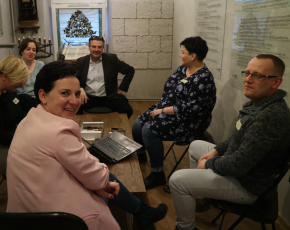
In winter 2020, Forum run two seminars for teachers about teaching Polish/Jewish history using Roberta Grossman’s documentary, Who Will Write our History, depicting the history of the Ringelblum’s Archive, a secret archive of the Warsaw Ghetto.
The first seminar took place in Lublin at the Brama Grodzka – NN Theatre, and the second one was held in Kielce at the Jan Karski Association’s educational space. These workshop-style seminars were dedicated to testing out classroom activities and discussions. Inspired by the mission of Oneg Shabbat, we developed ways of teaching about Jews and their history using their own voices as recorded in documents and artifacts sensitively, so that we incorporate the way they wanted to be remembered in death and life. We also introduced the Ringelblum Archive as a great resource for creating just such an approach to Jewish history. A key element of the seminars was presenting ways of researching the archive to find information about the teachers’ local history and how to find testimonies of Jews from their towns.
The conclusion of each seminar was a conversation with a teachers and Leaders of Dialogue: Marek Kołcon in Lublin and Mirosław Skrzypczyk in Kielce. The experts talked about their activism to inspire other teachers to take on the task of commemorating Jews and the Jewish past of their towns. Upon completion of the seminar each teacher received a Who Will Write our History DVD and a copy of education kit with lesson plans designed by the Forum on the basis of the film.
Educational initiatives related to Who Will Write Our History have been made possible thanks to the generosity of Al and Gayle Berg Family Foundation.
Marcin Dziurdzik January 30th, 2020
Posted In: EN News 2020
Leave a Comment
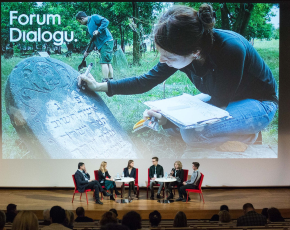
“Polish-Jewish Heritage of the Republic of Poland. Challenges of Memory and Education,” international conference organized jointly by Forum for Dialogue and the POLIN Museum of the History of Polish Jews, was a huge success!
For three days, nearly 300 teachers and educators from all over Poland had an unique opportunity to participate in lectures, discussion panels, and workshops, as well as to debate on how to talk about Polish/Jewish history without mythologizing or sugar-coating the past. Among scholars and experts in the field of Jewish studies who spoke at the conference were the representatives of Forum for Dialogue: Vice President Zuzanna Radzik was one of the panelists of “How to understand the Polish/Jewish heritage and why it is important to debate about it?” discussion, while our Leaders of Dialogue, Anna Włodek and Mirosław Skrzypczyk were joined by Young Leaders of Dialogue, Dominika Panfil, Piotr Czerniejewski, and Dawid Gańczak during the “Working with local communities on the preservation of Polish/Jewish heritage” panel chaired by Forum’s Julia Machnowska. Forum’s educator, Aneta Ceglarek shared her School of Dialogue expertise during the “Complicated memory – how to teach about the Jews from Western Territories that became part of Poland after World War II” workshop, and Izabela Meyza led the “Talking about the Jews in a classroom – how to cope with difficult situations” workshop.
Marcin Dziurdzik November 26th, 2019
Posted In: EN News 2019
Leave a Comment

Forum for Dialogue continues to grow. As our established programs keep on expanding, and we launch new successful initiatives, we had reached a point where it was necessary to separate the day-to-day operations from long-term planning. Hence, over the last two months, we have undergone a series of fundamental changes in how our work is organized. Zuzanna Radzik, who had been the Executive Board Member, replaced Michał Bilewicz as Forum’s Vice President. Michał stepped down to take on a new role as the Chair of Forum’s Scholarly Advisory Board that will be formed by next year. Zuza’s place on the Board was filled by Jakub Petelewicz, previously Forum’s Director of Education. Andrzej Folwarczny continues as the President and CEO of Forum for Dialogue, leading the Executive Board.
While the Executive Board will focus on long-term planning, relationship-building, and monitoring the success of our mission, Olga Kaczmarek was appointed for the newly established position of Forum’s Director General to take charge of overseeing our programs and daily operations, as well as representing Forum for Dialogue in Poland and abroad. As Director General Olga has the support of Monika Halaczek, who became the Deputy Director General. In her new capacity, Monika is responsible for further increase in Forum’s effectiveness and professionalization.
Marcin Dziurdzik November 12th, 2019
Posted In: EN News 2019
Leave a Comment
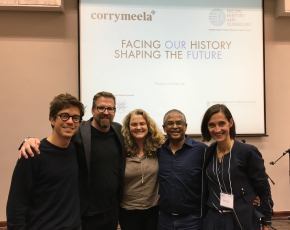
Thanks to an invitation from Facing History and Ourselves and support of EFC Foundation, Forum’s Director of International Relations Olga Kaczmarek participated in a Global Summit on Facing the Violent Past in Stellenbosch, RSA where she talked about the School of Dialogue program. As the conference, organized by Facing History and Ourselves, focused on the role of history education in fostering peacebuilding, positive intergroup and intragroup relations, and the processes of democratization, a presentation on the School of Dialogue program received a lot of positive feedback and interest from an audience of international educators and change makers.
Facing History and Ourselves is a US non-profit, one of the most important educational organizations working on a better, more open and just society by fighting xenophobia, antisemitism and other forms of discrimination. Forum has been its partner organization since 2012.
From left: Igor Czernecki, Chair of the Board of EFC Foundation and Polish Friend of the Forum, Dylan Wray, co-founder of Shikaya, South African non-profit that supports teachers and school leaders, Karen L. Murphy, Director of International Strategy for Facing History and Ourselves, Roy Hellenberg, co-founder of Shikaya and expert on education in post-conflict societies, and Olga Kaczmarek, Forum’s Director of International Relations.
Marcin Dziurdzik October 28th, 2019
Posted In: EN News 2019
Leave a Comment

17 members of Jablon family, descendants of Jews living in Siedlce before the Second World War, visited Warsaw and Siedlce in September 2019. Forum for Dialogue organized and facilitated the meeting with students from the Queen Jadwiga High School in Siedlce, followed by a workshop and a walking tour in the city.
The visit of Jablon family was organized by Zuzanna Rudzinska-Bluszcz, a granddaughter of Zofia Olszakowska, Righteous among the Nations who saved Cypora Jablon’s daughter, Rachel during the Second World War, and Judith Greenberg, New Yorker and cousin of Rachel. Zofia Olszakowska, Cypora Jablon and Irena Zawadzka were school best friends who graduated from Queen Jadwiga School in 1930s. In 1942, Irena and Zofia took on themselves rescuing one year old daughter of their friend Cypora from Siedlce ghetto. Cypora, her husband and other members of Jablon family died during the Holocaust, but Rachel survived in hiding. After the war Rachel left for Israel where she started her own family. She kept in touch with Irena and Zofia and those bonds of friendship persevered and are continued by next generations.
On the morning of September 19th , students from Queen Jadwiga High School filled the auditorium and listened to the history of friendship between two Christian and one Jewish girl which was abruptly ended by the horror of the Second World War, but lived in a biography of Rachel, a child survivor of the Holocaust. Eighty years after the outbreak of the war, families of Zofia and Rachel met with students to talk about intertwined Polish/Jewish history, taking responsibility in darkest of times, and value of friendship and respect. Judith Greenberg and Zuzanna Rudzińska-Bluszcz showed pictures of pre-war Siedlce and Queen Jadwiga school as well as described the post-war connections and histories of Jablon family and its Polish rescuers.
After the plenary session, group of Jablon family coming from United States, Israel, Italy and South America, met with students involved in School of Dialogue program led by Forum for Dialogue. The small, intimate workshop was an occasion to reconnect descendants of Siedlce Jews with teenagers who took upon themselves caring about Jewish history and heritage of their town. After lunch in school cafeteria, students invited guests for a walking tour in Siedlce and showed them traces of pre-war vibrant Jewish life in the city, as well as places connected to Cypora and Jablon story, including the original plot of pre-war Queen Jadwiga School and buildings inhabited by Jablon family before the war. The last stop of the visit was the Jewish cemetery of Siedlce, where a Rabbi and a Catholic priest led an ecumenical prayer in the memory of Siedlce Jews.
Members of Jablon family, re-united especially for this heart-warming visit in Poland, were impressed by the empathy, consideration and knowledge demonstrated by the participants of School of Dialogue program. It was the first time that alumni of School of Dialogue in Siedlce had a chance to meet with Jewish family tracing its roots in their hometown and they showed nothing but kindness, genuine enthusiasm, and willingness to share the knowledge about their town.
photos by: H.Gospodarczyk, J.Greenberg
Marcin Dziurdzik September 25th, 2019
Posted In: EN News 2019
Leave a Comment
« Previous Page —
Next Page »
